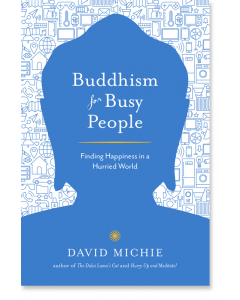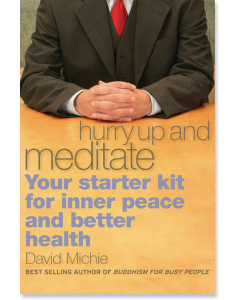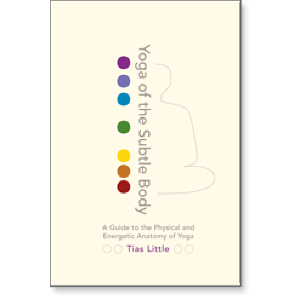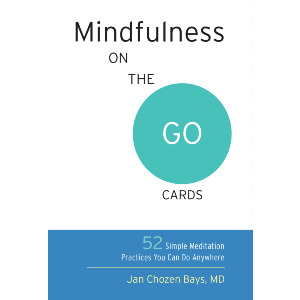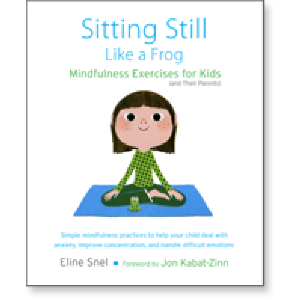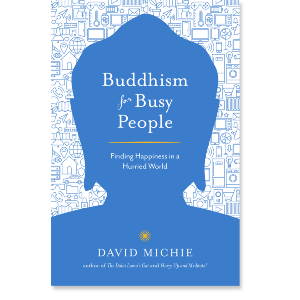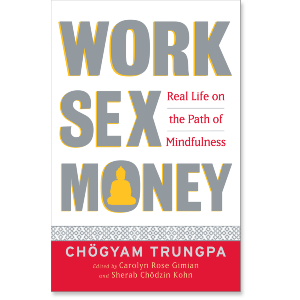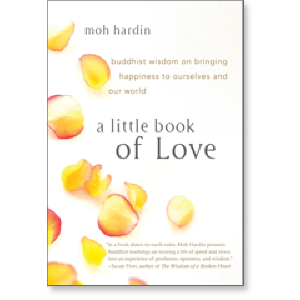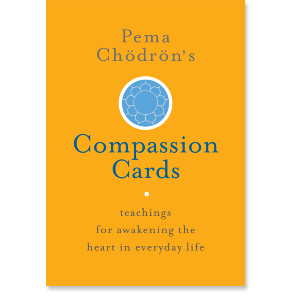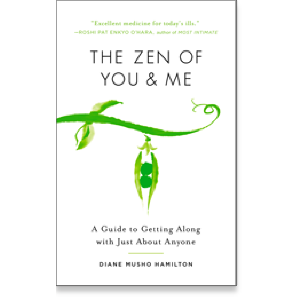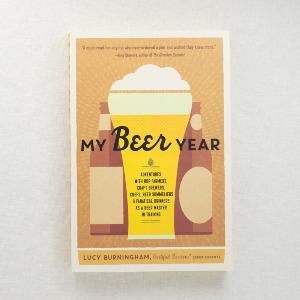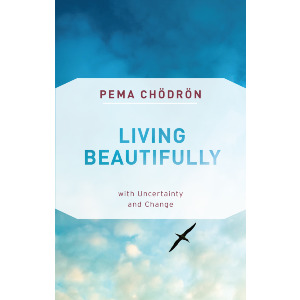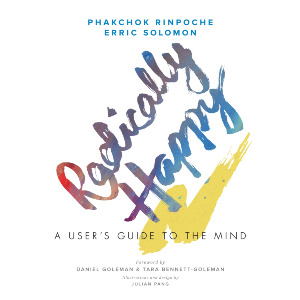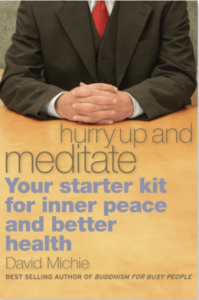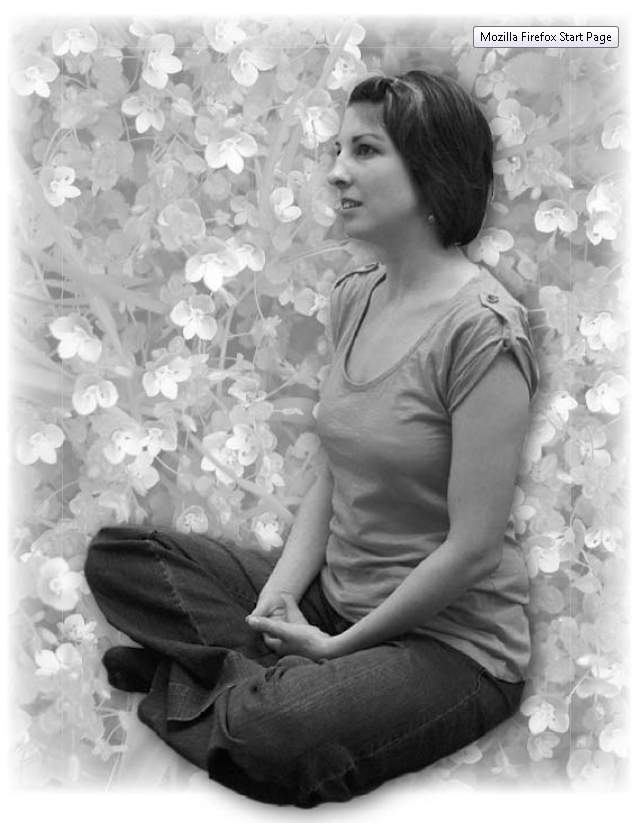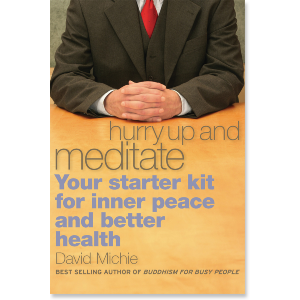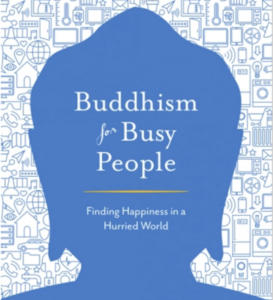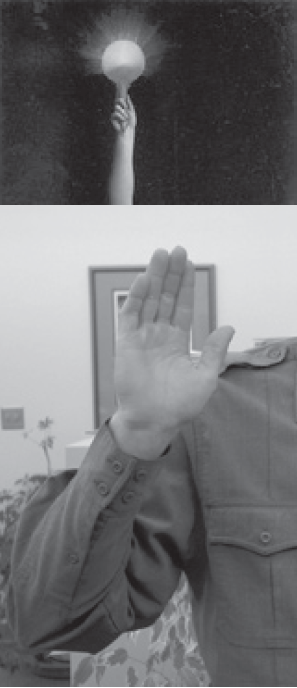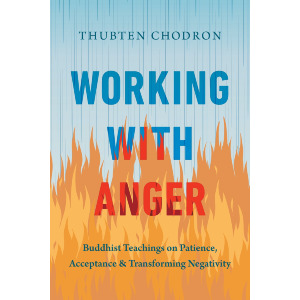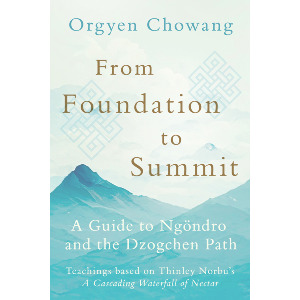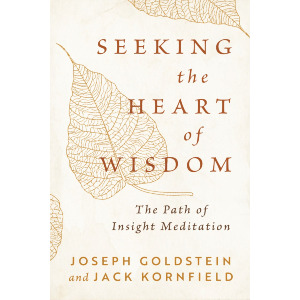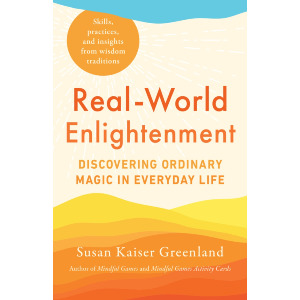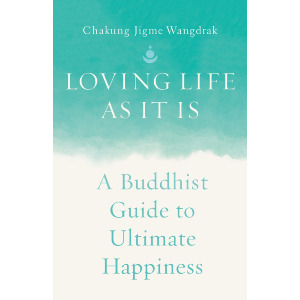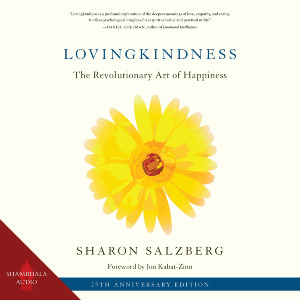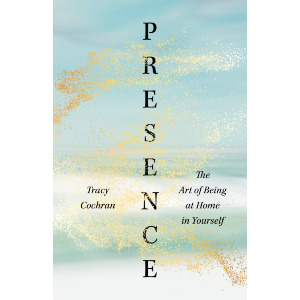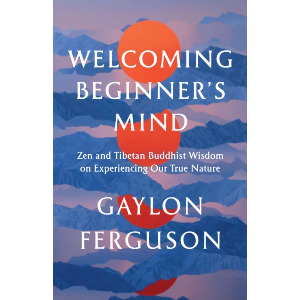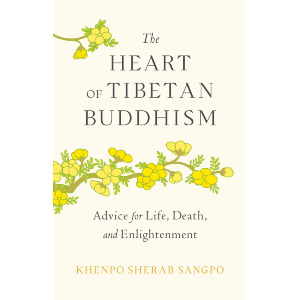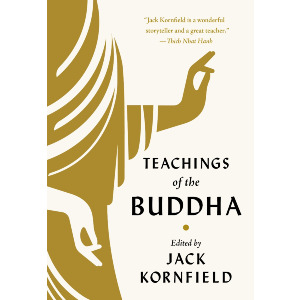

David Michie
David Michie is a corporate communications consultant, published novelist, and Buddhist practitioner. He lives in Perth, Australia.
David Michie
GUIDES


My phone is so close to me at all times it is like having a permanent pet. It is like a yo-yo. In my pocket, on the counter, atop the bed covers.
When did we decide we would all marry our devices, make the commitment “to have and to hold?” I’d like to think I am not attached. But I’m totally attached.
I have gotten into the practice, kind of an anthropological experiment, of watching the way other people behave with their devices. I slip around behind people and peer over their shoulder.
It is not just the way they crane their neck so far forward it seems like their head might snap off. It is not only the way they are absorbed by snap-shot photos of people at parties, pets sleeping, and pretty teeth. What really strikes me is how oblivious they are to me. The irony I’m sure is obvious. That in the age of constant contact, 10,000 connections and more, there is so much disconnect.
I watched a woman, like mid-fifties, FaceTiming her hubby back home. At least it seemed like her sweety because she started to ask about the kid’s bedtime and fixing the dishwasher. But the light from the window behind her bleached her screen in such a way that she couldn’t really see him. She could see only her own reflection mirrored on her screen.
There are times when I am in an airport and some businessman is talking to his associate on speakerphone. Going on and on about a deadline later that day. He doesn’t care a hoot that the warbled voice on speaker is loud enough for all around him to hear. Is that legal?
Our phones are just part of a fad, right? When our grandparents were kids there were no TVs. When I was a kid the phone was attached to the wall. Someday, probably fairly soon, the smartphones will be extinct. They will be interred in a massive smartphone graveyard.
In the meantime, the handheld device has become so habit-forming that all too often I find myself flipping open my lid and starting to press buttons when I have no idea where I am going.
The handheld device is a perfect replica for the habit mind. It gives us all the chance to indulge our habit mind anytime, anywhere.
Related Materials

A Reader’s Guide to Graduation

Graduation means many different things: it means endings as well as new beginnings, celebrations as well as new challenges, uncertainties as well as excitements. This little collection of books—on relationships, change, festivities, and more—will help grads and the people who love them to navigate their rite of passage with grace and support.
A LITTLE BOOK OF LOVE
The slim volume is packed with profound insights and advice on drawing more love into your life. While its practices and teachings are from the Buddhist tradition, you don’t need to identify as a Buddhist to gain wisdom from its pages. This accessible book offers tools for harnessing self-compassion, patience, and contentment in everyday life. As recent grads enter the world as truly independent young adults for the first time, this book will be a comforting companion that they can hold close to their hearts.
—Breanna, Associate Editor
BUDDHISM FOR BUSY PEOPLE
In our modern, technology-crazed world filled with likes, tweets, and status updates—not to mention what is going on in the real world—it is important to stop, slow down, and take a moment to breathe. This book is especially well-suited for recent graduates who need to take a moment off the grid to reconnect to themselves. For grads who may not know what they are going to do with their degree yet, or for those going into high-stress jobs, this humorous and heartfelt book offers a nice introduction to adding Buddhist practice to a busy life.
—Audra, Associate Editor
PEMA CHÖDRÖN’S COMPASSION CARDS
These cards are the perfect gift for that grad who might like a small, daily dose of inspiration. Focusing on compassion and living mindfully, each card has a short phrase on the front and a more detailed explanation on the back. These cards can be used daily, weekly, or however best fits in throughout their busy life—while they brush their teeth, on their desk at a brand new job. . . A lovely way to remind your grad to focus on what is important!
—Audra, Associate Editor
ZEN OF YOU AND ME
After graduating from high school or college, you’re almost certainly going to be navigating all sorts of new and changing relationship dynamics. Whether you’re living with a roommate for the first time, meeting new classmates with radically different worldviews from your own, starting your first full-time job with new coworkers, or spending more time with your family, this is a time when relationships will inevitably be forming and developing, and it can be challenging to maintain harmony with all of the important people in your life. Diane Musho Hamilton’s lovely little book, The Zen of You and Me, is the book I wish I’d had during my college and post-college years. It’s like a crash course in connecting with people mindfully, allowing good relationships to get even better, and preventing conflict even before it arises. Like the subtitle says, this is a guide to getting along with just about anyone. And in the event that you find yourself in the company of someone who doesn’t quite fit in the “just about anyone” category, you can always turn to Hamilton’s first book, Everything Is Workable: A Zen Approach to Conflict Resolution.
—Kate, Production Coordinator/Designer
MY BEER YEAR
This book chronicles many a grad’s daydream: traveling the world and drinking beer! As educational as it is fun and entertaining, Burningham’s journey to becoming a certified beer expert is one that any beer lover will enjoy. It is also a story about doing something you love and becoming successful at it—an inspiration to any grad—and is best served with a cold craft brew. We can all drink to that!
—Audra, Associate Editor
LIVING BEAUTIFULLY WITH UNCERTAINTY AND CHANGE
Uncertainty is the source of a great deal of suffering in this world, and recent grads are almost guaranteed to be intimately familiar with that truth. There is a great deal of pressure, both from society and from their own minds, to decide what they want to do for the rest of their lives, where they want to live, how they will contribute to society, all while dealing with the inevitable changes that come along with those decisions. Holding all of those questions simultaneously and trying to come up with answers can be incredibly overwhelming and daunting. In Living Beautifully, Pema Chödrön discusses how we can overcome the suffering associated with uncertainty by making friends with our fundamental groundlessness. She goes beyond simply coping with change, illuminating the ways we can use it as opportunity for growth. She accomplishes this with her signature accessible style, making this an ideal read for anyone who is confronting the enormous task of starting a new chapter in their life.
—Kate, Production Coordinator/Designer
RADICALLY HAPPY
Shifting into a new routine after graduation can sometimes be difficult. Finding the right balance between a new job, staying in touch with friends, moving, or managing student debt can be overwhelming. In these stressful moments, Radically Happy is the perfect antidote. Filled with accessible, step-by-step meditation and mindfulness practices, this book will help you regain a sense of calm and ultimately attain a happier life.
—Adria, Marketing Associate
SNOW LION NEWSLETTER ARCHIVE
Science shows that meditation is one of the best relaxants available
Best-selling author David Michie takes a look at some of the psychological and physical benefits of meditation in these excerpts from his book, Hurry Up and Meditate.
The most obvious physical change that occurs when we bring body and mind together in meditation is that breathing naturally slows and, with it, the heartbeat. Blood pressure decreases and so too the metabolic rate. Muscular tension reduces significantly.
In short, we relax.
It’s important to note that these physiological changes do not arise merely by resting. Repeated research shows that we can’t get the same benefits simply by sitting down and daydreaming or enjoying a cup of tea. In a state of ordinary physical rest, when we make no effort to manage our mental focus, we do not see a lowered rate of metabolism, a decrease in the use of oxygen, or reduced output of carbon dioxide. Nor do we see the heart rate decrease, as it does in meditation, by several beats a minute—in some cases, by as many as fifteen.
When we meditate the lactate concentration in our blood also decreases by up to a third. Why should this matter? Because blood lactate level is associated with tension and high blood pressure, and the infusion of lactate in the blood produces symptoms of anxiety. Studies have shown a reduction in lactate concentration in meditators of about four times as much as people who are merely resting. A quite separate biological marker of stress—resistance of skin to a mild electric current—has similarly been shown to decline by about four times among meditators.
A different significant effect of meditation is its impact on the hormones released by our bodies. Chocolate, sex, morphine, and acupuncture all stimulate the production of endorphins by our bodies. Joggers and gym junkies are familiar with the postworkout high—nature’s way of saying, “keep doing that.” So too, meditation increases endorphin output, and the resulting feel-good emotions are only part of the systemic benefits endorphins deliver. In short, meditation not only helps us get rid of unwanted symptoms of stress, it also creates positive body–mind states.
For more than thirty-five years, Dr. Herbert Benson, President of the Mind/Body Medical Institute and Associate Professor of Medicine at Harvard Medical School, has been studying what he calls “the relaxation response,” the state elicited by meditation. And as his research has importantly shown, the relaxation response has impacts which go well beyond any specific meditation session. What’s more, practicing meditation over a period of time has significant cumulative benefits.
Just as regular gym-goers experience the benefits of their exertions even when they are no longer at the gym—being able, for example, to hurry up a flight of stairs without getting breathless, or effortlessly to carry heavy luggage or grocery bags—so too meditators experience the benefits of their practice when off the meditation cushion. Apart from feeling calmer and better able to deal with the psychological stairs and interpersonal heavy luggage in everyday life, meditators experience benefits that can be measured physiologically. To quote Benson: “Repeated activation of the relaxation response can reverse sustained problems in the body and mend the internal wear and tear brought on by stress.”
Like a lot of people, the reason I started to meditate was in an effort to counteract stress. In my early thirties I had a demanding job in one of London’s most successful corporate public relations agencies. Having been brought up under the vast blue skies and in the wide open spaces of Africa, it was a tough adjustment for me to live in a shoebox-sized flat, deal with crowded commutes into central London, manage the stresses and long hours demanded of an up-and-coming spin doctor, and then try to find time for a social life. From a career point of view I knew I was in the right place. But I felt stressed out. So much so that I actually began breaking out in rashes.
At first I had no idea what was causing the itchy pink dots which would appear on my wrists and ankles for no apparent reason at random intervals during the day. The public health sector doctor to whom I eventually turned told me I was suffering from an allergic reaction, prescribed an antihistamine, and sent me on my way.
It was a naturopath whose flyer hit my doormat at just the right moment who fully explained my situation. Apprehensive about carrying a bottle of antihistamines around in my pocket for an indeterminate period, I made an appointment with this no-nonsense lady, who peered long and hard into my irises, made disapproving clucking sounds, and started asking about my daily routine. Among her questions was: How many cups of coffee did I drink? To which the answer was: Eight.
It turns out that a caffeine intolerance was the cause of the rashes—after I replaced coffee with water for a while, they disappeared completely. But quite apart from that, the naturopath told me that my whole system was stressed. I needed to do something to restore a sense of balance. She suggested meditation.
I’ll never forget the intense self-consciousness I felt those first few weeks when I got out of bed ten minutes earlier than usual to meditate. What I was doing felt contrived and artificial. Who the hell did I think I was sitting cross-legged like Maharishi Yogi, supposedly focusing on my breathing, but in reality distracted by every early-morning jet coming down into Heathrow, the sounds of the trash collectors and street sweepers, the angry hooting of horns as early-morning commuters got off to a bad start?
Despite my extremely poor concentration, however, I persisted. Not only because I knew it was supposed to do me good, but also because those ten minutes of being awake and alert were among the precious few when I felt no demands were being put on me. I’d given myself permission not to think about all the usual preoccupations—I had the other twenty-three hours and fifty minutes to do that. This was my ten minutes of “time off.”
And within even a few weeks I sensed a strange thing happening. At odd moments during the day I would remember that I’d meditated that morning, and in that moment of recollection I’d feel some of the same relaxation and letting go that I had in the morning. What Dr. Benson describes as “the relaxation response” felt, on a subjective basis, a bit like letting the steam out of a pressure cooker. Yes, I still got stressed out, pissed off, and agitated, but for the first time I had resources with which to deal with it. Interestingly, I was also becoming more aware of my moods as they were happening to me, rather than after the event. Without consciously setting out to, even those few minutes of very low-grade meditation were helping me become more aware of how I was feeling and acting during the day, and more conscious that I did have some choice in the matter.
Meditation should come with a health warning: Beware, this practice is addictive! Because even though I was often a reluctant meditator, and despite the struggle I experienced trying to sustain concentration for more than a few moments, the simple fact was that I liked what meditating was doing for me. Yes, it was definitely helping me with my stress. But that was only the beginning.
Books by David Michie
The truth, and nothing but the truth-except sometimes
The average American lies 25 times a day, according to recent statistics. Does Buddhism say that lying is always wrong? This excerpt, adapted from David Michie’s Buddhism for Busy People, takes a look at the surprising complexities of perfecting ethical behaviors.
Day one on your five-star African safari, and you and your friends are about to enjoy a banquet in the bush. It’s lunchtime on a balmy granite outcrop. You’re set up in the perfect spot—all cane furniture, white tablecloths and spectacular views. Everything seems perfect—until there’s a commotion, and a buck suddenly comes bounding through the undergrowth. Catching sight of the group, it immediately veers left, charging back into the elephant grass.
You’re a bit taken aback, but not unduly. But half a minute after the buck has disappeared, there’s another scramble through the bush—this time it’s a game warden that appears, followed by a panting, pink-faced hunter, rifle at the ready.
“Which way did it go?” they shout.
A simple question, but answering it isn’t so straightforward. And if you’re a Buddhist it could present you with a significant ethical dilemma. Do you create black karma by telling a lie? Or do you tell the truth, and assist in the likely killing of a sentient being?
This is not my ethical brain-teaser, but Buddha’s, one he used to illustrate the fact that ethical issues are often far from straightforward. Which does not excuse us from trying to practice ethics, but does recognize that lists of “dos” and “don’ts” aren’t always foolproof, and that there is a more important factor that should always be considered.
Buddhism encourages us to get real about ethics. While practicing the first perfection of generosity can be transformational, if generosity is combined with slippery ethics the end result is unlikely to make us happy. So closely are the first two perfections related that they are sometimes likened to a bird’s wings—both necessary to achieve lift-off.
As Buddha suggested, there is nothing straightforward about ethics, even when we try to do the right thing. In the business world, notions like corporate responsibility, triple bottom line reporting, accountability and transparency suggest we are moving into a more ethical age. But the collapse of global accountancy firms, oil firms and IT companies remind us how easily ethical standards can be compromised. We might like to tell ourselves we do the right thing, but sometimes it’s only when a mirror is held up to our face that we are confronted by the unattractive truth.
Even if we want to do the right thing, we may be concerned that by adhering to high ethics we’ll put ourselves in a weak situation. If we work in an industry where everyone else “exaggerates,“ what will become of us if we don’t? If we reveal every source of income to the tax department, how can that possibly benefit us at the financial year end? The karmic pay-off in our next lifetime may be wonderful, but who is going to pay this year’s school fees?
Buddhism encourages us to analyze ethics from the perspectives of both the disadvantages of non-practice and the advantages of practice. To quote Geshe Loden, “The Buddha said that wishing for liberation but creating non-virtue is like a blind man looking in a mirror—a pointless exercise.” Just as the man’s visual handicap prevents him from seeing anything in a literal sense, an ethical handicap will prevent us from seeing the truth in our dharma practice. We can spend as many hours as we like in silent meditation, but if we also engage in duplicitous activities we might as well not bother.
The happiness that derives from ethics is not all about delayed gratification. People who are truly ethical—as opposed to merely sanctimonious—are frequently the most pleasant to be around. They are open, rather than guarded, because they don’t have to conceal things. They are relaxed, free from the concern that past actions may come back to haunt them. So the happiness that comes from good ethics isn’t all in the future, it is also here and now.
The practice of ethics is a vast subject within Buddhism, and includes eighteen root and 46 branch bodhichitta vows, starting with that most universally broken injunction against praising yourself and denigrating others. However, not even this framework provides all the answers to the troubling ethical issues that underlie contemporary headlines about economic refugees, stem cell research and nuclear waste disposal, let alone such age-old controversies as abortion and euthanasia.
Buddha did provide a useful principle, however, which he illustrated with his hunters and the buck story. In such circumstances, he said, the right ethical choice was to mislead the hunters about where the buck went in order to save its life. What really counts, he said, is motivation. The motivation to save the life of a sentient being is more important than the motivation to keep a vow of truthfulness which, in the circumstances, would have been a meaningless accomplishment.
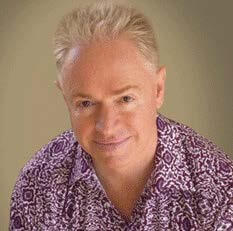
Books by David Michie
David Michie: Living with Yourself: Crime and Punishment
Adapted from
Buddhism for Busy People
Imagine this scene: you have been found guilty of some unknown but terrible crime, and are about to be sentenced. There is no question of being let off lightly. A fine would be too lenient. So would a jail term. In the surreal state in which you find yourself, the judge has created a cruel, round-the-clock punishment especially for you.
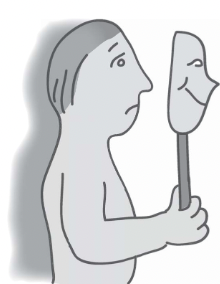
You are to be taken from the courthouse and returned to your everyday life, giving the appearance that you’ve been set free. The catch is, you are to be accompanied everywhere you go by an invisible being. This being is just like you in every respect—not so bad, you might think at first. Where the punishment comes in is that your unseen companion never stops talking. You soon discover that from the moment you wake up in the morning—even before you’ve opened your eyes—to the moment you finally fall asleep, you’re being talked at. Yada, yada, yada. Blah, blah, blah. There’s no escaping the punishment—you don’t even get five minutes’ peace and quiet in the bathroom—the judge has explicitly ordered that you are never to be left alone.
Most of the time your unseen torturer rambles on in a chaotic stream of consciousness. He has some lucid moments. But even these drive you crazy, because the invisible being only ever talks about one subject and one subject alone: me, myself, I—24/7! Want more, now! Gimme, gimme, gimme!
No one else is aware of the endless chatter of, let’s call him, Self. Which is just as well. If Self’s constant monologue were to be broadcast on radio, you would soon be shunned, not only on account of Self’s frequent, unsavory preoccupations—which nice people like you and your friends wouldn’t want to be associated with—but also because he is so completely me-focused.
This story is, sadly, far less fictitious than we mostly care to admit. Self seems ever-present, if not in our faces, then insistently whispering at us from in the wings. But when we try to turn the spotlight on him, to pin him down, to make him accountable for some disastrous episode, like McCavity in T.S. Eliot’s Cats, he’s never there.
The wiliest of operators, the very ultimate in spin-doctors when he needs to be, Self makes sure that when we do see him, he is the master of the plausible explanation. It is not Self’s vanity or egotism that caused you to lose your temper with someone—no way, that person was being outrageously provocative. It is not Self’s constant need for self-aggrandizement or material props that has you pushing your credit limit—on the contrary, you’re just trying to give your family a better quality of life.
Even when we do succeed in seeing through Self’s brilliantly devious spin, and recognize what a dangerous influence he is, for the most part we’re so used to him and his endless carping that we’ve come to think of it as normal. Natural. Intrinsic to who we are.
More than that, let anyone else so much as hint that they’ve caught a glimpse of Self and don’t much like what they see, far from agreeing with them about this unhappy state of affairs, we’ll feel hurt or angry and leap to Self’s defense. Like kidnapping victims suffering from Stockholm Syndrome (who start to empathize, then fall in love, with their captors), even though we know that Self is ranting, negative and obsessive, the bizarre truth is that we love him more than anything, and are at pains to indulge his every whim. We do our best to make him feel special, brilliant, successful, popular, wealthy, powerful, enlightened, or whatever trip he happens to be on. Most frightening of all, somewhere along the way we allow Self to so dominate our consciousness that we even start to think of him as our essence. Our true being. Our “real me.”
Popular magazines lecture to us that allowing Self expression is one of the highest goals of human beings. When other people thwart this, they are jeopardizing our chances of happiness, and we should break free from such negative people and situations.
Society sets great store in protecting the rights of Self. Advertisers play directly to Self’s monomania. And the desire to give Self his fifteen minutes of fame, to make him feel important, is constantly being exploited in new and creative ways.
From a Buddhist point of view, the veneration of Self is just plain crazy; we couldn’t be more effectively guaranteeing our own misery if we tried. For all our dissatisfaction, every last ache of suffering we experience can be traced back to our habitual indulging of Self.
This observation is by no means unique to Buddhism. There is a growing trend among contemporary psychologists to consider the cult of self to have gone too far. And no doubt one of the reasons the Dharma is becoming so popular in the West is that so many of us are waking up to the recognition that it directly addresses the prevailing unhappiness of our time.
It’s an amazing paradox: the more we focus on making ourselves happy, the unhappier we become. We remain convinced that attracting money, love and influence to ourselves is the road to happiness. Conventional consumerism and social beliefs support this delusion. But an honest assessment of the facts—whether the microcosm of our individual loneliness, or the macro trend of antidepressant consumption—reveals the same incontrovertible evidence that me-ism makes us miserable. Or in the words of Shantideva:
We all seek happiness, but turn our backs on it.
We all wish to avoid misery, but race to collect its causes.
Writing in the New Internationalist magazine, psychiatrist and writer Trevor Turner said, “Today a rising tide of narcissism is spreading like toxic social algae...Conditions such as air rage, road rage and dysmorphophobia (the conviction that you don’t quite look right) all reflect the triumph of individual desire over a commitment to the world outside oneself.”
The Buddhist response to the paradox of narcissism is both simple and profound: altruism is the cause of the abiding happiness we all seek.
Fortunately, Buddhism provides us with creative, radical and powerful tools to help us on what will probably be a lifetime’s mission. Just as the law of cause and effect shows us that it’s in our own selfish interests to be generous, so too our understanding of bodhichitta can profoundly alter our attitudes to others.
Adapted from Buddhism for Busy People: Finding Happiness in an Uncertain World by David Michie


